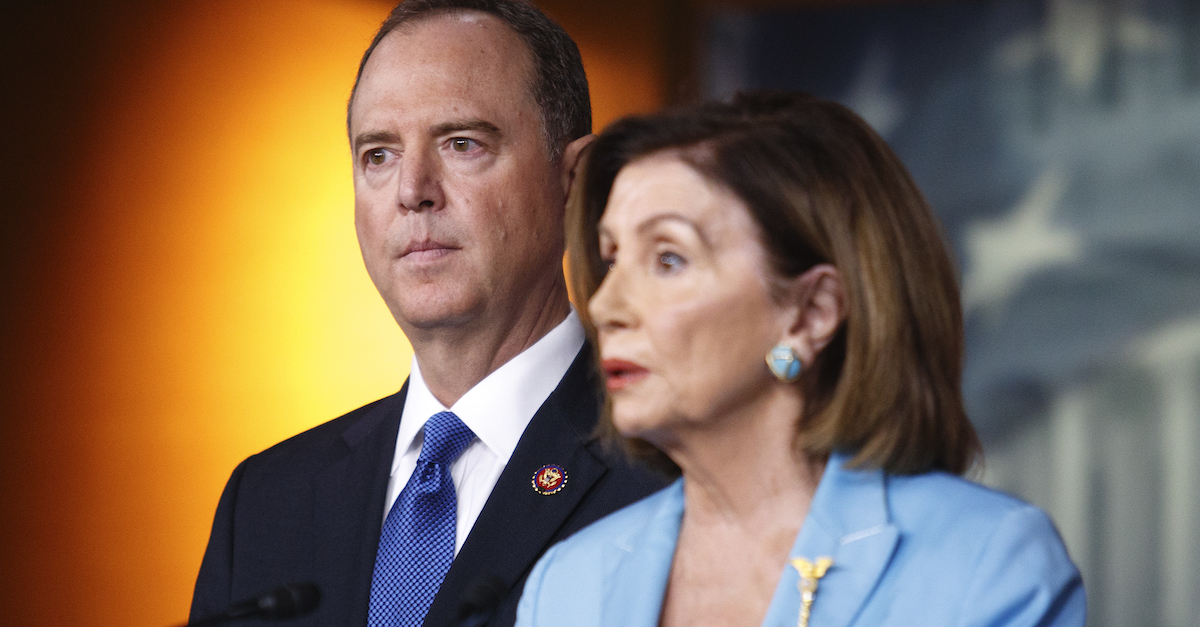
House Democrats are pushing a bill which would criminalize corrupt pardons, outlaw presidential self-pardons, and prevent the president or vice president from using public office to run out the clock on the statute of limitations.
The bill, titled the Protecting Our Democracy Act, aims to criminalize the presidential pardon power when it is used for corrupt purposes by adding relevant language to the federal bribery statute. 18 U.S. Code § 201, which deals with bribery of public officials and witnesses, would amend the statute to add the words “including the President and the Vice President of the United States.” The statute would read as follows [emphasis added to new wording]:
(1) the term “public official” means Member of Congress, Delegate, or Resident Commissioner, either before or after such official has qualified, or an officer or employee or person, including the President and the Vice President of the United States, acting for or on behalf of the United States, or any department, agency or branch of Government thereof, including the District of Columbia, in any official function, under or by authority of any such department, agency, or branch of Government, or a juror […].
The president or vice president, being clearly lumped into the definition of public official under the bribery statute, would commit a federal crime if he or she “directly or indirectly, corruptly demands, seeks, receives, accepts, or agrees to receive or accept anything of value personally or for any other person or entity, in return for: (A) being influenced in the performance of any official act; (B) being influenced to commit or aid in committing, or to collude in, or allow, any fraud, or make opportunity for the commission of any fraud, on the United States; or (C) being induced to do or omit to do any act in violation of the official duty of such official or person.”
The legislation would make it a crime to dangle clemency to corruptly influence a person’s testimony, whether in court or before Congress. The bill also includes a “prohibition on presidential self-pardon”:
The President’s grant of a pardon to himself or herself is void and of no effect, and shall not deprive the courts of jurisdiction, or operate to confer on the President any legal immunity from investigation or prosecution.
Connected to all of this is the so-called the “No President is Above the Law Act” section of the bill, which can be found in sec. 201. That section would dictate that a president or vice president cannot use public office as a way to dodge any statute of limitations:
In the case of any person serving as President or Vice President of the United States, the duration of that person’s tenure in office shall not be considered for purposes of any statute of limitations applicable to any Federal criminal offense committed by that person (including any offenses committed during any period of time preceding such tenure in office).”
Notably, this would also apply to any offenses committed prior to taking office.
House Intelligence Committee Chairman Adam Schiff (D-Calif.) and Democratic chairs of various other House Committees said in a statement that President Donald Trump’s time in office shows why such legislation is necessary.
“Since taking office, President Trump has placed his own personal and political interests above the national interest by protecting and enriching himself, targeting his political opponents, seeking foreign interference in our elections, eroding transparency, seeking to end accountability, and otherwise abusing the power of his office,” the lawmakers said. “Our democracy is not self-effectuating – it takes work and a commitment to guard it against those who would undermine it, whether foreign or domestic. It is time for Congress to strengthen the bedrock of our democracy and ensure our laws are strong enough to withstand a lawless president. That’s why we are acting today to introduce the Protecting Our Democracy Act.
“This reforms package will prevent future presidential abuses, restore our checks and balances, strengthen accountability and transparency, and protect our elections. These reforms are necessary not only because of the abuses of this president, but because the foundation of our democracy is the rule of law and that foundation is deeply at risk,” the statement went on. “This is just the beginning because we need to obtain more information so that we can continue to refine and develop these and other reforms.”
[Image via Tom Brenner/Getty Images]